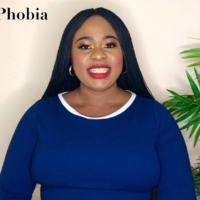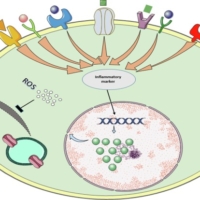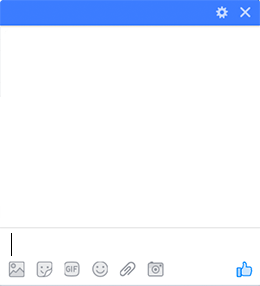7 Signs It Might Be Anxiety
Narrator Hi Psych2Goers Have you noticed the little things you do when you are 39 and you’re feeling stressed, out, or anxious Like you people when you, think, anxiety you may think of someone who is, having trouble breathing or someone who is sweating profusely. But what about the more subtle signs of anxiety? There are many less obvious signs of anxiety. You may not be aware of So to help you out. Here are seven little habits. You don’t know are signs of anxiety Number one. You excessively play with your hair. Have you ever heard people say that when a person is touching their hair, it’s a sign of flirting? While there is some truth in this, it does depend on the situation, the psychological state of the person, and who the person is interacting with When you’re nervous, you may feel some sort of harmless relief when you touch your hair, but too much of this May also lead to body-focused repetitive, behaviors or BFRBs, which consists of a set of disorders like compulsive hair, pulling compulsive, nailbiting and compulsive skin picking Number two: You create multiple to-do lists. How – many task lists do you have Sometimes when you’re an. Thinker, you may, forget a lot of the little, things whet, her. It’s 39’s buying groceries and bringing a document to work to meet up with a friend at a certain. Time Writing your tasks may help you remember what to do and reduce your overall anxiety about forgetting them, But too many to do. Lists may not be helpful either. Since writing. Tasks with no prioritization can end up overwhelming us as well. According to a study done by a senior doctoral student at Carleton University, it is indeed effective to use to-do lists to plan your day. However, its effectiveness may depend on how much you like, the structure, and organization. Every year, most people set New Year’s resolutions, but around 80 of these were New Year’sandoned in just the first two months. The best way to succeed with your resolutions is to transform them into tiny habits and stick to them, which is why we’re. So thankful to have Fabulous the number one self-care app to help you build better habits and self-are your goals to be the sponsor. For this, the video Fabulous has guided journeys for common solutions like exercising more improving your sleep, and eating healthier. If you’re ever in need of, a quick boost or inspiration, try out Make Me Fabulous. This is a series of guided training that can help supercharge your Fabuloutrainingnce and discover a variety of topics, habits, and goals. It’s like having a coach in your pocket. Wherever you go, You can do challenges as easy and rewarding as the self-care challenge, which has simple tasks like self-care in your favorite movie. There’s no shortcut to changing habits With your resolution this year. Consider a proven, affordable, sustainable, long-term approach to changing your life, one long-term on your successes. Try out Fabulous today and get 25 off your subscription Number three. You’re not able to sleep through the night. Can you sleep well at night When stressed out, people with anxiety disorders tend to have a state of mental hyperarousal, frequently marked by worry, which leads to hypersleep reactivity Research also found connections between anxiety disorders and changes in a person’s sleep cycles, When you’re anxious and ruminate before sleep. This aa you’re rapid eye movement or REM, sleep which may induce more unsettling dreams and result in a higher likelihood of sleeping disruptions. Having nightmares during sleep may also reinforce a negative association of dread and sleep Number four: You use fear language. Do a lot of your sentences start with I’m concerned, I’m afraid, or I’m, worried According to a licensed clinical psychologist, Alicia H, Clark, PsyD PLLC, The regular use of such phrases may indicate a deeper problem, Even though it may sound normal. Sometimes this fear language can be a sign of anxiety that is most often brushed off Number five. You’re not able to sit still. Can you be still when you’re sitting down? Perhaps you can’t help but tap your foot or scrum around in your chai. According to Dr Clark, being restless and unable to sit still can be a subtle sign of anxiety. However, it’s important to note that being unable to sit still can also be a classic example of attention. Deficit, hyperactivity, disorder, ADHD, since sitThe deficit, is an under-stimulating task that is unrewarding to the brain Number. Six You apologize excessively. Do you say sorry a lot? Another sign of anxiety is when a word of apology comes too often and easily, even when it’s, not your fault or when it’s. Out of your control With anxiety, you may find yourself over-appealing for the situation. According to Dr. Juliana Breines, an Assistant Professor of psychology at the University of Rhode Island, If you’re always hard on yourself and have a tendency to beat yourself up for things, then it’s likely you’ll also tend to over-apologize And number seven ten do moreover-apologize you always told off for overlooking small details and making small mistakes? Sometimes, when you have anxiety, you may feel overwhelmed with thoughts such as about how things may go wrong, and you end up not paying attention to the things happening around you. This can make you overlook crucial moments in important details. So if you find important details or forget crucial information, a lotta the time it may be a sign of anxiety, What do you do when you’re anxious? Let us know in the comments below if you found this video helpful, be sure to like subscribe, and share this video with those who might benefit from it, and don’t forget to hit the notification bell icon to get notified whenever Psych2Go posts a new Video, The references, and studies used in this video are added in the description below Thanks for watching and we’ll see you in the next one: lighthearted music,
My 6-step formula for GCSE exam success. Achieve a top grade in all your GCSE exams whilst spending half of your time doing the things you enjoy. I explain why note-taking is NOT the way ➯➱ ➫ ➪➬ The General Certificate of Secondary Education (GCSE) is an academic qualification in a particular subject, taken in England, Wales, and Northern Ireland. State schools in Scotland use the Scottish Qualifications Certificate instead. Private schools in Scotland may choose to use GCSEs from England.
















